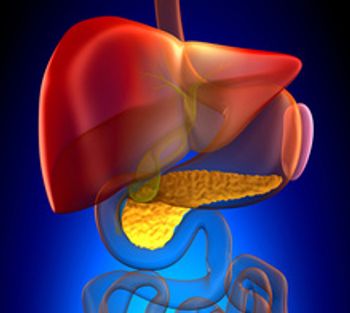
Research suggests cannabis can improve quality of life for patients who suffer from pain and neurological disorders.
Erin Hunter is an assistant editor at Pharmacy Times®. She is a proud alumna of the University of Massachusetts. She graduated with degrees in Journalism, Art History, and Environmental Conservation.

Research suggests cannabis can improve quality of life for patients who suffer from pain and neurological disorders.

Researchers will submit a new drug application to the FDA after a phase 3 trial found that iDose TR slow- and fast-release models met their primary endpoint in patients with glaucoma.

While the performance of nasal self-sampling rapid antigen tests for COVID-19 was found to decrease over time, adding oropharyngeal may improve its performance.

Men with chronically low testosterone levels are more likely to be hospitalized from COVID-19 than those with normal levels, but testosterone therapy could decrease this risk.

Online communities can help opioid users in remission maintain long-lasting sobriety, however the research suggests these communities should be non-drug-related.

Researchers found differences in the variable importance of cancer mortality risk factors depending on an individual’s geographical region.

The drug improves kidney function in adults with hepatorenal syndrome with rapid reduction in kidney function.

Researchers found that patients diagnosed with early-onset type 2 diabetes have a greater risk of premature death than the general population.

Researchers have identified hydroquinine as a potential treatment against drug-resistant bacteria, which can cause infections with a 70% mortality rate.

Study suggests gene therapy may effectively treat young children who were born colorblind via pathways connecting the brain and the retina.

Research suggests that subcutaneous insulin aspart is a cost-effective and accessible treatment option that could allow children with type 1 diabetes to avoid the ICU after a mild episode of diabetic ketoacidosis.

New research presented at ESMO Congress found that certain patients with advanced melanoma administered a combination of cemiplimab with fianlimab experienced a median progression-free survival of 2 years.

Excess drinking is a major atrial fibrillation risk factor in young people.

Researchers at the European Society for Medical Oncology Congress presented findings that show osimertinib may clinically reduce the risk of lung cancer recurrence.

Research suggests that rucaparib can increase progression-free survival by more than a year in women with advanced ovarian cancer.

The New Drug Application for aripiprazole 2-month, ready-to-use, long-acting injectable could lead to the first FDA approval of a 2-month schizophrenia and bipolar I disorder antipsychotic treatment.

Research suggests that non-traditional complications from type 2 diabetes are hospitalizing more people now than they did 20 years ago.

Ribociclib with endocrine therapy was found to increase the median overall survival of patients with HR+/HER2- advanced breast cancer with visceral metastases to nearly 5 years.

Data presented at the European Society for Medical Oncology Congress showed that sotorasib increased progression-free survival to 1 year in 25% of patients with KRAS G12C-mutated non-small cell lung cancer.

Surveys show that 70% of migraine sufferers are not satisfied with their current acute treatment regimen.

Although serotonin is widely associated with feelings of happiness, a study suggests it may be associated with the severity of COVID-19.

A refundable state-level earned income tax credit was associated with a 21% reduction in high-risk HIV behavior among low-income women last year, suggesting that policy can reduce this burden.

Researchers expect to file for FDA approval within the year following the successful phase 3 trial.

Receiving 3 doses of the COVID-19 vaccine can offer better and more long-lasting protection against the Omicron variant.

Fruquintinib reduced the risk of death in patients with advanced metastatic colorectal cancer by 34% and led to longer overall survival than among those given placebo.

Viral antigen levels in blood plasma can provide clinically important patient outcomes among hospitalized patients with COVID-19.

Prescription drug monitoring programs have decreased prescription opioids in the United States but resulted in unintended spikes of illegal drug use and heroin-related deaths.

The percentage of infections, hospitalizations, and deaths that were prevented from COVID-19 vaccination increased with greater vaccine coverage, according to a recent study.

Children younger than age 6 years might be protected from other COVID-19 variants for up to a year after infection.

Obesity, heavy alcohol consumption, and coagulopathy were some of the greatest risk factors associated with patients returning to the operating room within 48 hours of a surgery.